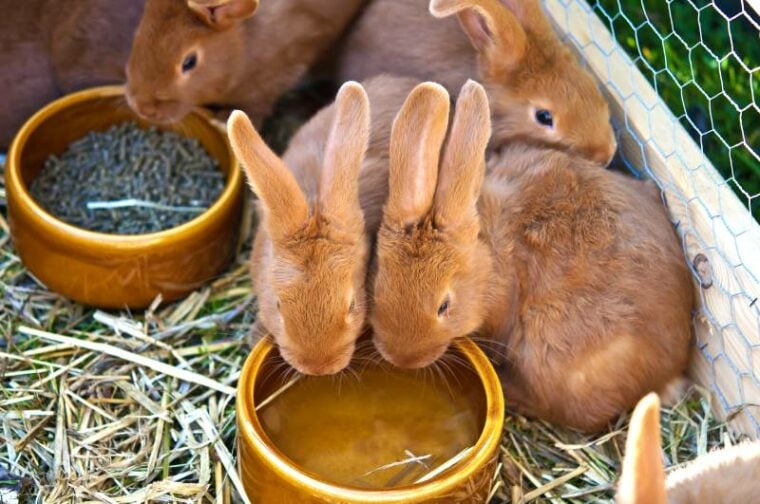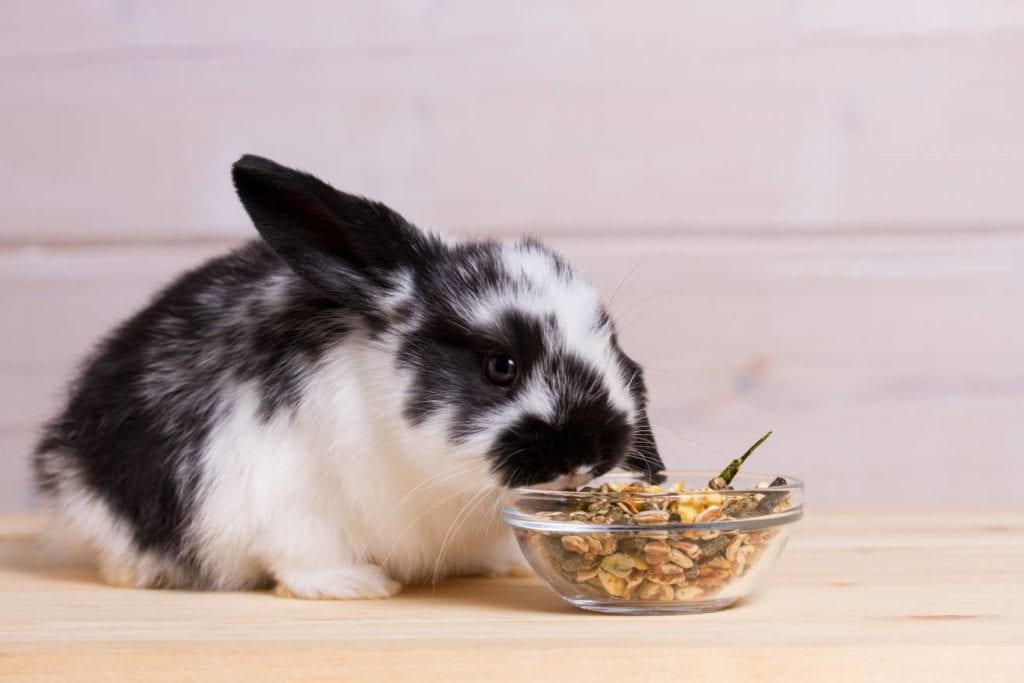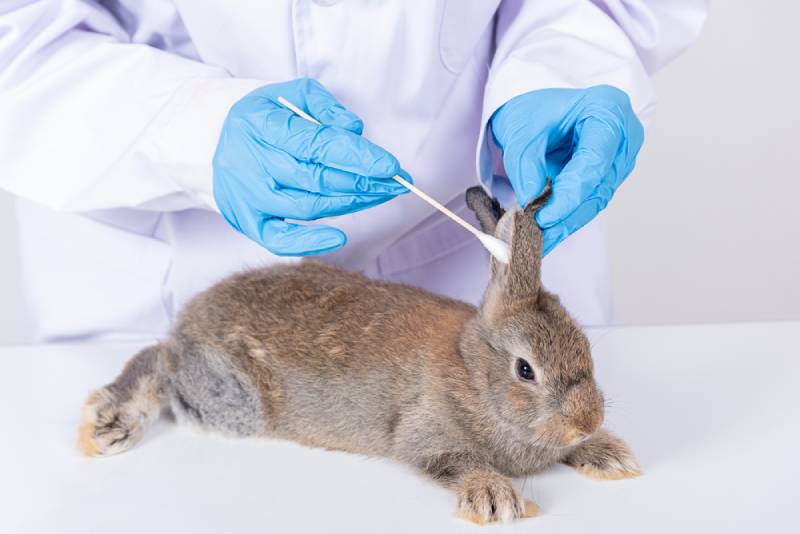
Some animals can survive a substantial amount of time without food or water, but in the case of pets and production animals, this is unethical and harmful to their health and wellbeing. In fact, certain animals are well equipped to go long stretches of time in between meals, as food may be sparse where they live. Other animals cannot go even hours without water or food.
Under no circumstances should any of our pets go without food and water. However, if you’re curious about rabbits in particular, we’ll explain exactly how long they can go without food or water and what happens when their body does. This information is meant to educate rabbit owners on how sensitive these creatures are. They cannot be left home alone for any long period of time.
Keep in mind if you have a pet rabbit, they need fresh food and water available to them daily. We will also go over the dietary expectations of rabbits so you can plan your care accordingly. Because they rely on this constant snacking to keep their digestive systems functioning, their systems will drastically decline within 12 hours of not having a supply of food, and by this time they should have gone and seen the vet already.

How Long Can Rabbits Survive Without Food?
Unlike some other domestic pets, rabbits are natural grazers. They require a constant supply of food and hay to keep the fiber and other nutrients in their bodies working on system functionality. Rabbits can survive significantly less time than other mammals.
Rabbits spend most of their days munching on greenery, flowers, and other forest finds. The issues do not come from starvation but rather a pH change in the GI tract. It can result in a very dangerous condition known as GI stasis.1 This condition happens when the intestines start to slow the passage of food.
This pH change can cause an influx of gas-producing bacteria. If your rabbit continues not to eat, and many lose their appetites during this time, it may lead to organ failure and eventual death.

How Long Can Rabbits Survive Without Water?
Water is a crucial element to your rabbit’s daily living. A single rabbit cannot go for more than 12 hours without drinking water, at most. This crucial component is a matter of life or death for your bunny. Within several hours of not having access to water, a rabbit system starts to shut down bit by bit systematically, due to dehydration.
So even if they have several hours with no access to water, it can have detrimental consequences on their overall body. Even rabbits who survive water deprivation might not thrive like they once did due to other health problems coming as a result.
Your rabbit should have direct access to fresh, clean water every day. They have very sensitive immune systems, and food bowls and bottles should always be clean and debris-free.
GI Stasis in More Detail
Gastrointestinal stasis is a life-threatening condition that rabbits develop when the digestive tract becomes imbalanced. This condition causes the pH levels to change, resulting in overgrowth of harmful bacteria, production of gas, distension of the intestines and stomach, abdominal pain, and risk of sepsis and organ failure.
GI stasis needs to be treated promptly. Left untreated for any length of time, it can worsen, resulting in death. It’s important to know the signs.
If you know your rabbit has gone without food or water for any length of time, it is imperative to get them to the vet as quickly as possible. Even if your rabbit isn’t showing any of these signs, your vet needs to look at the rabbit to make sure all systems are working properly.


How Often to Feed and Water Rabbits
Rabbits should always have a freshwater source available to them. Rather than drinking from a dish, most rabbit owners find that it is best to put a fresh water bowl and a water bottle attached to the cage.
Your rabbit needs a constant source of hay, as they are grazers. They will munch on hay all day long to keep their gastrointestinal tract running correctly. Timothy hay is available at most pet shops both in-store and online.
Your rabbit should eat a combination of commercial rabbit pellets alongside fresh leafy greens, vegetables, and herbs. Be careful not to give too many sugary veggies, like carrots, even though your bunny loves them.
In addition to making sure your rabbit has enough food and water per day, you need to make sure they get the right portions. On average, a rabbit between 6 and 10 pounds only needs 1/4 cup of pellets a day. If the rabbit is smaller than this, you would adjust the portions accordingly, keeping in mind that hay should make up around 85% of daily food intake, leafy greens and any veggie or fruit treats 10%, and pellets only 5%.
Going without food or water is much more detrimental, but rabbits can also quickly gain weight by overeating. Since their digestive system is so sensitive, overeating can cause gut complications that can lead to vet visits.

Conclusion
Now you know that rabbits cannot (and should not) go 12 hours without eating or drinking, and these are the maximum durations. Your rabbit should never go any length of time without available food and water. But there are certain situations where one of these things happened by mistake or your rabbit is sick and refusing to eat and drink.
A rabbit going without eating can cause detrimental problems for internal organs, and it might lead to many more severe complications. Always ensure your rabbits have fresh food and water sources, with hay being the primary grazing supplement. Get your rabbit to the vet if they go longer than 12 hours without eating and drinking, or ideally as soon as you notice reduced appetite and changes in drinking or defecation.
Featured Image Credit: Tasty Life, Shutterstock











